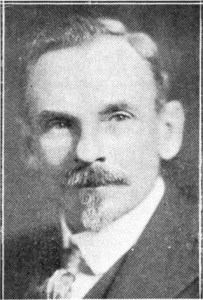
stead : alexander hume ford, 1922
| home | catalogue | history | references | appendix |
 |
surfresearch.com.au
stead : alexander hume ford, 1922 |
 |
Men of Mark Alexander Hume Ford of Honolulu. BY HENRY STEAD |
Many years
ago,
in 1907, when Mr. Ford first went to Honolulu, he took with
him a great
idea, and he has consistently worked on it ever since.
This idea
first
of all found expression in the Hands-Around-the-Pacific
Club, and
Page 558
later in
the Pan-Pacific
Union.
Why, said
Mr.
Ford, should the nations of the Pacific not get together and
be friends,
instead of each sulking in its tent preparing for trouble?
...
In 1908 Mr.
Ford
began the systematic organization of the Pan-Pacific Union
by making a
trip to New Zealand and Australia, where he interested
leading men in the
idea.
In 1914 he
again
toured the Pacific, and completed his previous work.
He then
organized
branches of the Union in all Pacific lands.
In 1920 he
persuaded
a party of Congressmen to visit the Orient, and establish
points of contact
with the leading men in Japan, China and the Philippines.
Page 560
When Mr.
Ford
first came to Honolulu he spent a year looking round before
he got seriously
to work.
But such a
man
could not remain inactive, and during the first twelve
months he organized
the Outrigger Canoe Club, with the object of reviving
surf-board riding.
The old
timers
ridiculed him.
White men
could
never ride these surf-boards, they said; only native
Hawaiians were able
to do so.
Undismayed,
he
managed to get together 100 enthusiasts.
From this
nucleus
the club has grown until it has a membership of 2000 men,
women and children.
On Waikiki
Beach
you may see white men ride the waves any day, white women
sometimes, and
you may see some of the world's champion swimmers disporting
themselves
in the waves.
He next
organized
the Trail and Mountain Club for trampers, which is still
going strong.
There are
few
new things in Honolulu Mr. Ford has not had a hand in
starting.
But he does
not
care to take a leading part once the organization is on its
feet.
...
Ford, who is
a bachelor, is unable to work at night, but he makes up for
that by being
at his office every morning between four and five.
In the midst
of his innumerable activities he manages to bring out The
Mid-Pacific Magazine
every month.
It is a
wonderful
production.
It relies
upon
its pictures to catch the interest of the reader, and the
captions below
these pay eloquent tribute to Ford's skill as a
journalist.
Printed on
fine
paper, with its many illustrations, this magazine is indeed
a remarkable
publication to come out of Honolulu.
The blocks
are
made in the town, and the whole of the printing is done
there.
To bring out
this periodical would keep most men fully employed, but Ford
has so many
other important things to do that he almost forgets he is
editing it, and
has to see it through in the early hours before the city is
astir.
Alexander
Hume
Ford was born in Charleston, South Carolina. 53 years ago.
His
ancestors
were amongst the earliest settlers there.
On his
mother's
side he is descended from the Earls of Marchmont in
Scotland.
One of his
forbears
signed the Declaration of Independence, and was a close
friend of George
Washington in tent and in council chamber.
Becoming
first
Gov-
Page 561
ernor of
South
Carolina, it was through his efforts that the Colony broke
away from the
British Empire, and threw in its lot with those in the
North.
Educated at
the
Porter Academy in Charleston, Ford early joined the staff of
The News and
Courier of that city.
After the
famous
earthquake he moved to New York, where he wrote plays in the
spare time
his newspaper allowed him.
After
traveling
around for awhile, he settled in Chicago, joining the staff
of The Daily
News.
...
Page 383
Page 386
The Photo
Club
here has promised to aid in a splendid exhibit of
photographs by the youngsters.
I have two
of
our boys at the Outrigger Club who will be busy during the
Exhibit making
surf boards.
Two or three
boys are making enough money at this to put them through
college if they
care to use the money for that purpose.
I think we
could
have an exhibit of the making of the ukulele by boys that
are learning
this art.
Then of
course
there would have to be the exhibit of our Hawaiian boys'
glee clubs, ukulele
quartettes and the steel guitar.
|
|
Stead, Henry:
Men of Mark - Alexander Hume Ford of Honolulu. The Mid-Pacific Magazine Honolulu, Volume 23, 1922. Hathi Trust Digital Library http://hdl.handle.net/2027/uc1.$b566780 |

| home | catalogue | history | references | appendix |